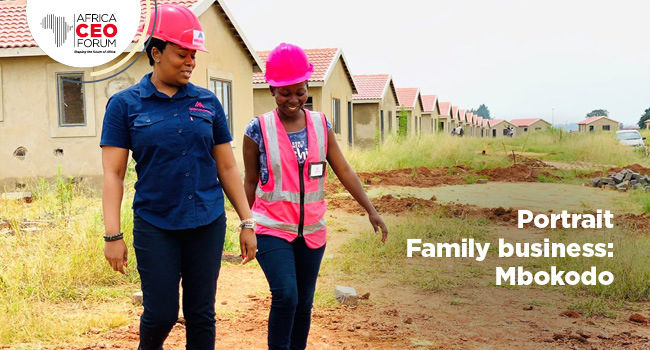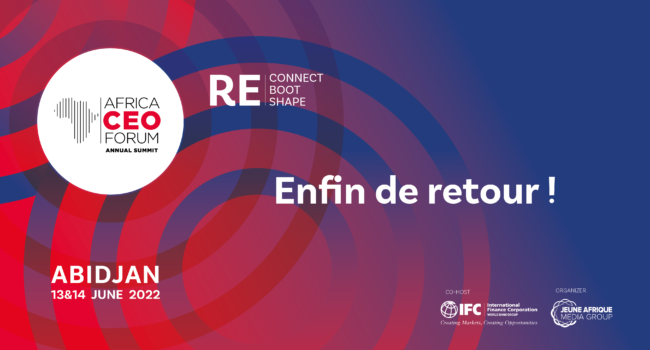
By Laurdi Sala-Diakanda, Head of TMT at the Africa CEO Forum and Falilou Serigne Cisse, Director of Public Relations at Wave Mobile Money
As Africa’s digital revolution gains momentum, the continent stands at a crossroads. With innovations like mobile money transforming financial services, the need for a regulatory environment that both encourages growth and ensures stability has never been more critical.
The Double-Edged Sword of Regulation
Regulation, by its very nature, is a double-edged sword. On one side, it is necessary to protect consumers, ensure fair competition, and maintain stability in the market. But there’s a catch: excessive or poorly designed regulations can stifle innovation, discourage investment, and slow down the adoption of new technologies.
Africa’s burgeoning tech sector, particularly in financial technology, exemplifies this tension. The mobile money revolution, which started in Kenya with M-Pesa and has since spread across the continent, has significantly improved financial inclusion. Today, platforms like Wave Mobile Money, with over 15 million active users and handling $1 billion in monthly transactions, allow people to manage their finances more efficiently and securely, without the need for traditional banking infrastructure. However, the regulatory landscape remains fragmented and often inconsistent across different countries, creating hurdles for both startups and established companies.
At the 2024 edition of the Africa CEO Forum, Regional Director of Wave Digital Finance, Coura Carine Sene, alongside industry leaders and renowned policymakers, participated in a strategic roundtable discussion titled Finding the Perfect Balance: Achieving Innovation-Friendly Tech Regulation.
The conversation highlighted the need for a new approach to regulation—one that is not only responsive to technological advancements but also anticipatory of future developments. In a rapidly changing tech landscape, rigid regulations can quickly become outdated, creating unnecessary barriers for companies operating at the cutting edge of innovation. Instead, regulators should focus on creating guidelines that can evolve over time, allowing for continuous innovation while maintaining essential protections for consumers.
A new approach to tech regulation in Africa should include:
-
Open Dialogue:
The first step toward innovation-friendly regulation is fostering collaboration between regulators, tech companies, and other stakeholders. In response to safety worries, Yango, a ride-hailing company active across Africa actively engaged with the government of Côte d’Ivoire, resulting in regulation stipulating a maximum age for cars. “… Today, we don’t use cars that are more than 3 years old; subsequently accident rates in Abidjan have dramatically reduced over the last seven years. And because we’re working with the government, it is very possible to build regulations that encourage innovation and investments because now there’s lot more transparency.” said Adeniyi Adebayo, CEO Africa at Yango who highlighted the significance of open dialogue.
H.E Mrs. Paula Ingabire, Rwandan Minister of ICT and Innovation, who also took part in the debate, concurred: “As policymakers our approach has always been inclusivity, building as we go and allowing space where we know innovators have better capabilities.”
-
Right-Sized Regulation:
Regulatory frameworks must be proportional to the risks posed by new technologies. Heavy-handed regulation may inadvertently hinder the very progress it seeks to protect, particularly among startups and smaller companies that may not have the resources to navigate complex compliance requirements.
Wave brings wealth of insights from the ground—understanding user needs, the challenges of scaling operations, and the potential risks that new technologies might introduce. Their extensive experience in West Africa, where they operate in six different countries, has shown that an across-the-board approach to regulation is often ineffective. Each market has its own unique challenges and opportunities, and regulations must be tailored to reflect these differences.
For instance, while consumer protection is crucial, overregulating mobile money could limit access to financial services for those who need it most. A tiered approach, where regulation scales-up in line with the size and scope of the business, can help maintain a balance.
-
Flexibility and Experimentation:
The pace of technological change demands regulatory systems that can adapt quickly. Sandboxing, where new products and services are tested in a controlled environment before full-scale rollout, is one such approach. This allows regulators to observe the impacts of innovation in real-time and adjust regulations accordingly. It also provides innovators with the space to experiment and refine their offerings without the fear of immediate regulatory repercussions.
-
Harmonisation Across Borders:
Africa’s tech market is inherently interconnected, with users often transacting across national borders. Yet, regulatory discrepancies between countries can create significant barriers to scaling operations. Wave Mobile Money has succeeded in expanding across much of West Africa despite this, but challenges encountered underscore the importance of regulatory harmony. The company’s aim to reach 25 million users by the end of 2025 depends in part on the creation of a regulatory environment that supports cross-border operations.
Looking Ahead
As Africa continues its digital transformation, the need for innovation-friendly regulation will only become more pressing. Technology companies have a crucial role to play in shaping a regulatory environment that balances the need for consumer protection with the imperative of fostering innovation.
Wave aims to empower individuals by providing them with the tools they need to participate fully in the digital economy. Coura Carine Sene, Regional Director at Wave Digital Finance said, “Just focus on the user. Do what they want, and they will support you. Regulators will change their mind when they see your success.”
How we regulate Africa’s digital transformation will determine whether we fully realize its potential. Innovation-friendly tech regulation is not just about protecting consumers; it’s about creating an ecosystem where new ideas can flourish, and where we can continue to break down the barriers to financial inclusion.
The Africa CEO Forum and Wave are proud to be part of the journey to make Africa a global leader in digital innovation, setting a standard for how to regulate the technologies of the future.



